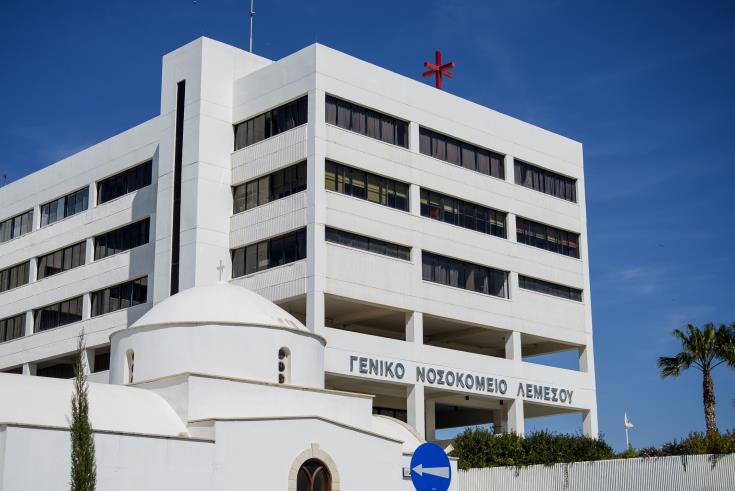The director of the state health services organisation (Okypy) is to visit the Limassol hospital in a bid to resolve problems caused to outpatient services by upgrade works at the site, it was announced on Wednesday afternoon.
The announcement that chief executive officer Kypros Stavrides will meet with hospital parties onsite to ensure the necessary measures for doctors to be able to work, came after temporary closures of outpatient services, due to noise and dust on Wednesday morning.
Earlier, Health Minister Michalis Damianos had called for patience after doctors suspended activities citing “unacceptable” working conditions.
It had been impossible for doctors to hear their patients speak over the noise of pneumatic drills, the head of government doctors’ union Pasyki, Sotiris Koumas, had said.
Responding to news of the situation, Damianos had said that between 2025 and 2027 major works were planned for the public hospitals, and some inconvenience was to be expected.
He had added that doctors at the Limassol hospital had resumed treating patients as normal.
Okypy’s total three-year development programme is budgeted at over €175 million and includes the expansion of all public hospital A&Es. It also foresees the creation of seven new units: a neurology clinic at Nicosia general hospital, a children’s A&E, a paediatric neurology clinic, and a neonatal ICU at Makarios Hospital, a new ICU and nephrology clinic at Limassol hospital, and a mother and child ward at Paphos hospital.
Beyond this, the plan includes the renovation and upgrading of existing infrastructure, the organisation said.
An additional amount of €114m had been earmarked during the period towards the upgrading and modernisation of medical, and other necessary equipment.
According to Okypy, once completed the implementation will usher in an era of improved health services due to energy and structural upgrades to buildings, and “improve the patient experience as well as strengthen [the sector’s] competitiveness.”
Health and safety plans had been prepared to minimise risks (such as from noise, dust and accidents) before the start of works at Limassol and the other hospitals, Okypy said.
These had been designed and monitored by the health and safety officers in cooperation with infection control committees where required.
At the Limassol hospital, where work is carried out above the outpatient clinics, an agreement with the contracting company limited work generating noise and dust to the hours between 6.30am and 8.30am and 12.30pm to 4pm. During the four-hour interval, outpatient clinics could operate out without any particular problems, Okypy said.
Koumas had earlier told the CyBC that the outpatient ward at the hospital would have to close whenever conditions become too disruptive to offer services, criticising Okypy for failing to plan the works properly to minimise inconvenience for patients and staff.
Koumas described the works as being carried out “literally above our heads” with holes being drilled in the ceiling and supporting columns being extended to accommodate a second floor.
“Patients should have been moved to another facility while the works are underway and construction should have been carried out sequentially,” he added.
Doctors had been kept in the dark about the project’s timeline and how long the disruption would last, he said.
For his part, Okypy spokesman Charalambos Charilaou, had responded that the organisation had “done its utmost to ensure the least amount of noise and disruption,” and said carrying out the work in stages was unfeasible.
Charilaou admitted that the directive to stick to assigned hours may not have been fully adhered to by the contractor, in the case of the Limassol hospital.
While extremely difficult, Okypy was looking for alternative sites for outpatient services, such as the old Limassol hospital or the Linopetra health centre, he said.






Click here to change your cookie preferences